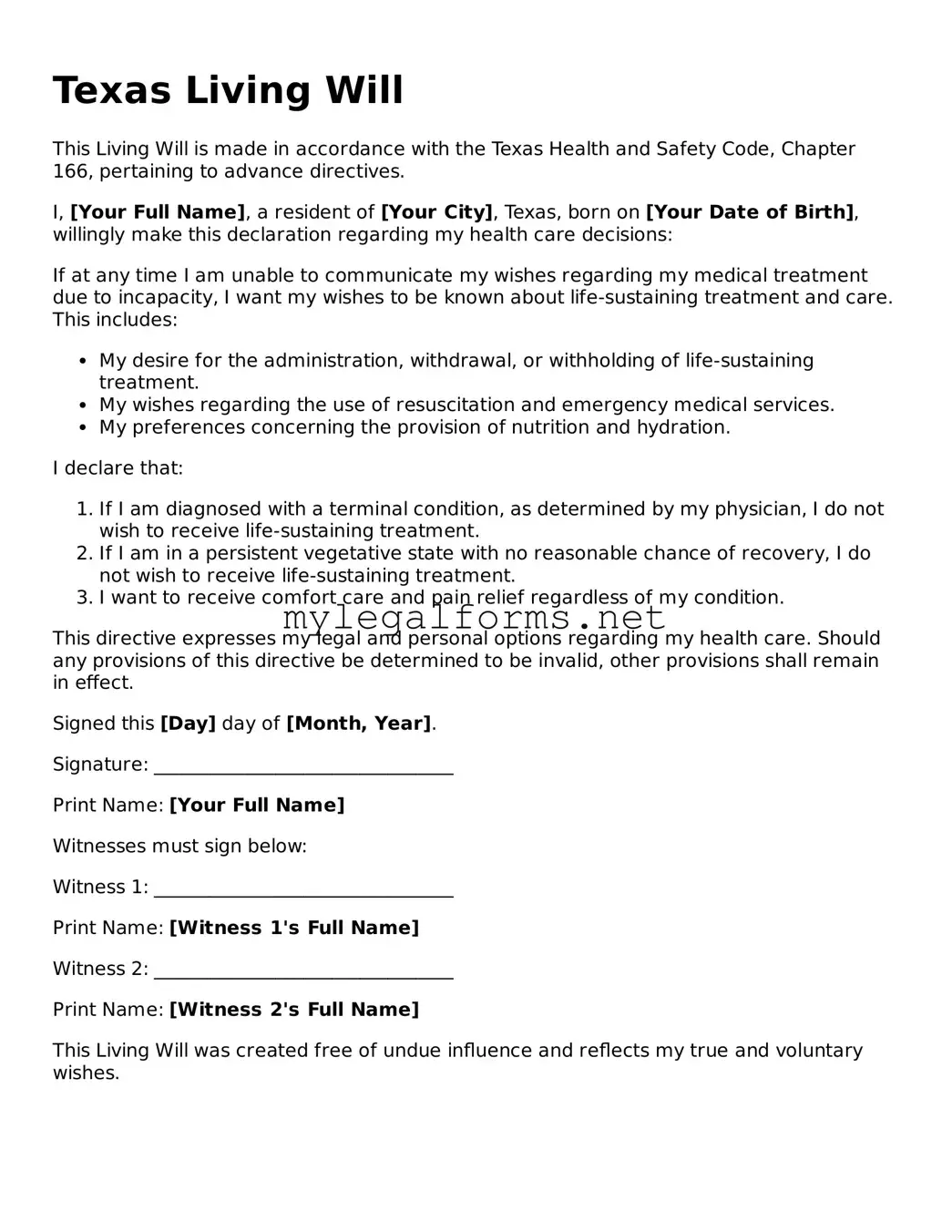Living Will Document for Texas State
A Texas Living Will form is a legal document that allows individuals to outline their preferences for medical treatment in the event they become unable to communicate their wishes. This form ensures that healthcare providers and loved ones understand what types of life-sustaining measures a person does or does not want. By completing a Living Will, individuals can take control of their healthcare decisions, providing peace of mind for themselves and their families.
Launch Living Will Editor

Living Will Document for Texas State
Launch Living Will Editor

Launch Living Will Editor
or
⇓ PDF Form
Complete the form at your pace — fast
Finish your Living Will online and download the final version.